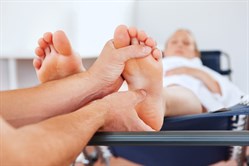Week 20
Week 20 pregnant
Your baby is around 21 cm long. If you haven’t been able to determine it before, it is now possible to see what sex your baby is via an ultrasound. Your womb is at the half-way mark and will reach up to your navel by now.
Congratulations, you are now officially half way through your pregnancy! High five! Although the average length of gestation is 40 weeks, it is still considered within a normal range to deliver 2 weeks either side of this. Try not to set your hopes on your due date as a guarantee that you will have your baby on this precise day.
Your expected date of delivery is intended as a guide to plan towards, nothing more. If you’ve had an irregular menstrual cycle or are unsure of when you conceived, an ultrasound can give a fairly accurate estimate of your baby’s maturity and gestation.
At 20 weeks pregnant, you may find that you are walking a little differently to accommodate that extra lump in your belly. This is because your centre of gravity is changing. Watch your posture and remember what your mother used to say “Don’t slouch and put your shoulders back”. It’s amazing how much more room this makes in a crowded tummy.
If you have a desk job, spend some time thinking about the comfort of your chair. You may need to adjust the back and seat height so that you are avoiding unnecessary strain. Organise your work area so that it is working for you, not the other way around. Some organisations have occupational therapists available that would be able to give you some practical working station ideas.
Ouch, my shoes are killing me!
Make sure you wear comfortable shoes so you are stable when you walk. If you’re used to wearing high heels, think about coming back down to earth in some flatter ones. Many women find they don’t fit into their usual shoe size during their second trimester. Blame those pregnancy hormones again! In fact, it is normal for women to permanently go up as much as a full size in shoes after childbirth.

Time for those inquisitive tummy-touchers
Expect some interest and fascination about your pregnancy from others. Most people find expectant women a delight and show genuine interest in how they are doing. Some will automatically want to reach out and touch your belly and feel for the baby. How you respond to this is entirely up to you. You may find it rather nice or alternately, a violation of your space and privacy.
It is normal to feel protective towards your belly and subconsciously want to “shield” it from potential harm. Feel free to tell people, in the nicest possible way of course, that you’d prefer it if they didn’t put their hands on your tummy and that it makes you feel a little awkward. Otherwise, enjoy the attention and fuss, which will undoubtedly come your way.

Your physical changes this week
- When you are 20 weeks pregnant, don’t be concerned if an ultrasound locates your placenta lying low in your womb. Although the placenta is well attached to the wall of your womb, your womb will grow upwards and enlarge, so it won’t necessarily stay in the same segment.
- Your womb is around the level of your navel this week. Your waist has gone and instead, you’ll find your body’s width is continuous from under your arms through to your hips. If you’ve had a baby before, it is likely you are showing more early than with your first. Those abdominal muscles have been stretched before and aren’t as taut as they once were.
- Your heart has been increasing its blood pumping capacity and this week it is managing to pump out around 7 litres of blood every minute. Because of the effects of your pregnancy hormones, your blood vessels are more lax to allow for the extra blood flow. This means you could be developing varicose veins or even haemorrhoids. Don’t be too horrified. They tend to settle after delivery and don’t generally cause on-going problems.
- You may be developing a heat rash under your breasts, in your armpits or between your legs. Your inner body temperature is up a couple of degrees from normal so you are probably more sweaty than usual. Avoid wearing anything other than cotton underwear next to your skin and make sure the sizing is right. Go for comfort rather than style. A light dusting of an absorbent talcum powder can be helpful after showering, but please resist the temptation to cake it on.
- Chloasma, the darkly pigmented facial mask of pregnancy, occurs in around 50-70% of pregnant mothers. It is also known as the butterfly mask, as it tends to follow a pattern similar to a butterfly’s body over the nose, with the wing formation over the cheeks. Chloasma settles after birth but if it is worrying you in the meantime, think about using concealer or foundation to cover it up. Make sure you wear a hat and sunscreen if you’re going outdoors. UVA and UVB rays will make it worse.
- You could feel dizzy or faint this week, a common experience in the second and third trimesters. Avoid standing still for long periods or standing up quickly if you’ve been lying down. Allow your body to adjust as you go from being horizontal to vertical.
Your emotional changes this week
- You could find yourself thinking about your labour and delivery this week. At 20 weeks, a certain mental shift occurs as it becomes obvious to you that this baby is going to need to come out at some stage. A very small percentage of women are genuinely terrified of labour and build up significant anxiety about it over the course of their pregnancy. If this is your experience, make sure you speak with your midwife or doctor about your concerns. Sometimes antenatal counselling becomes necessary.
- If this was the week of your scan, you could be feeling much more emotionally connected with the baby than you have been. Many women hold back until the foetal screening scan confirms that all looks normal with their baby. This is completely understandable. Seeing your baby’s face for the first time is a momentous occasion, even if it is through a screen.
- If you find yourself needing to break into a sprint, or you are in a potentially risky situation, you’ll probably find your hand automatically goes down to support your belly. Get used to these little mannerisms, which seem to bypass the thinking centres of your brain as you just go onto automatic pilot. There is usually a very good reason for them.
- Is your partner feeling a little detached? Make sure he comes to the ultrasound and as many antenatal appointments as possible. Although you may be 100% baby-focused, try to remember that his experience of the pregnancy so far is only through your symptoms. Give him time to develop his own relationship with the baby and don’t push him too hard.
Your baby’s changes this week
- By 20 weeks your baby’s external ears are perfectly formed. They are designed to channel sound waves towards the inner ear where noise can already be heard as it filters through your abdominal wall. This is why it is important to talk to your baby every day, so it can learn to recognise your voice as being familiar when it is born.
- This week your baby is around 16.5 cm long from its crown to its bottom. Baby’s skin is still coated in vernix caseosa, the white greasy coating that protects the tender skin from drying out.
- Your baby is surrounded by around 320 ml of amniotic fluid this week. The temperature of the fluid is maintained at a slightly higher degree than your own core temperature. This helps your baby stay warm.
- There are lots of baby movements this week and you are becoming increasingly aware of them. They aren’t strong enough to cause you any discomfort and are a lovely way of reassuring you that baby is doing well.
Hints for the week
- If you are worried by varicose veins, investigate support stockings or tights. These can give some relief if you need to be on your feet for long periods of time. Try to elevate your legs and feet when you can, sit where possible and avoid standing still for long periods to time.
- Haemorrhoids can be helped by ensuring that you have a high fibre diet with lots of fluids to drink. Bran-based cereals are useful, as are fruit, vegetables, grains, legumes and beans. Avoid straining when you are having a bowel motion, or sitting on the toilet for lengthy periods. If you feel the need to move your bowels, don’t put it off. Ignoring your body’s signals can lead to long-term problems, so if you need to go, just go!
- Book your antenatal classes if you haven’t already done this. Even if you’ve had a baby before, consider a refresher course if you think you’ll benefit. Otherwise, get to the library or a corner bookshop, or spend some time online checking reputable sites to boost your knowledge on pregnancy and birth. It pays to be informed and to be an advocate for your own, as well as your baby’s health.
- Look after your back. Avoid lifting heavy objects and twisting as you lift. Back ache and strain is common during pregnancy and it is easier to avoid a back injury than to recover from one. If you do find yourself a bit sore, go for the natural fixes. Warm baths or showers, massages, heat packs and gentle exercise can all be effective. Consider seeing a physiotherapist if you have continuous back ache. There are specific exercises you can do to strengthen and support the muscle groups in your spine.
Next up - Week 21!

